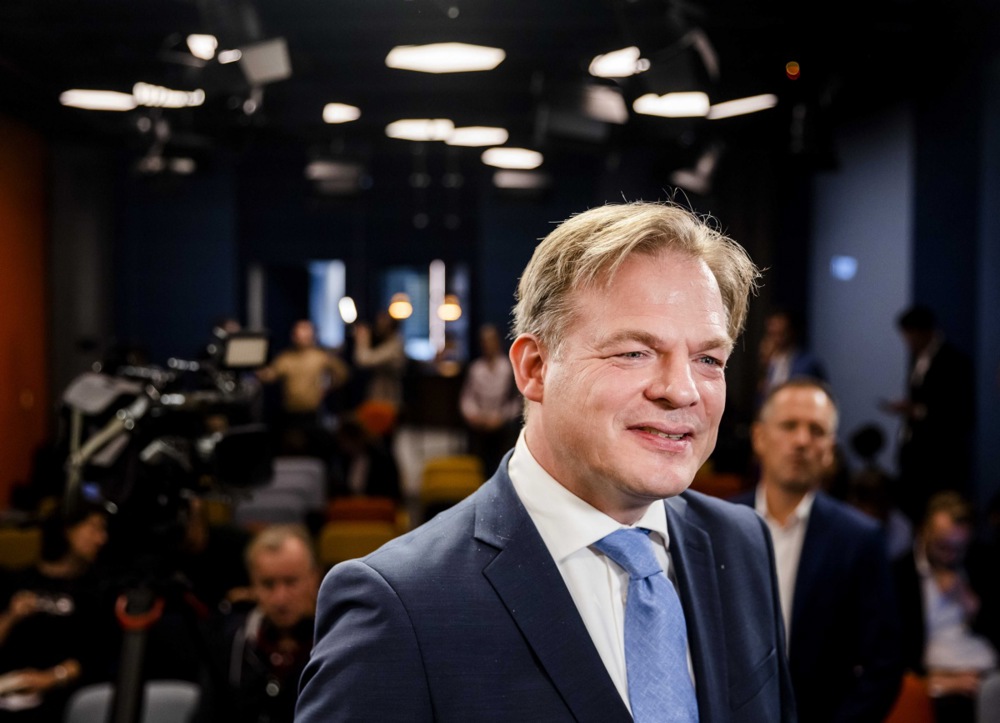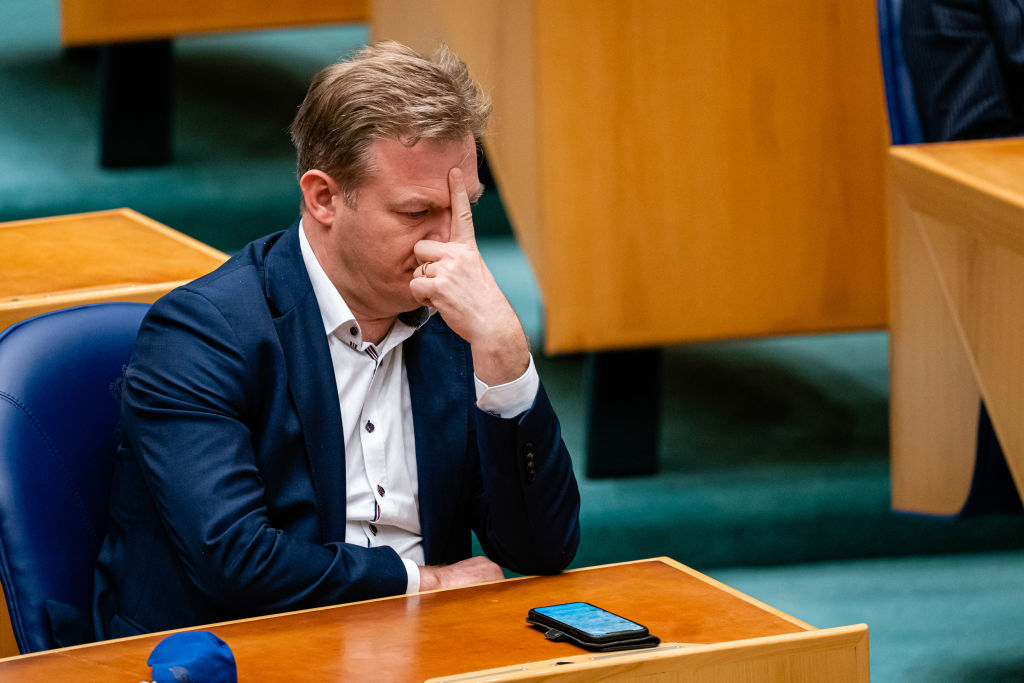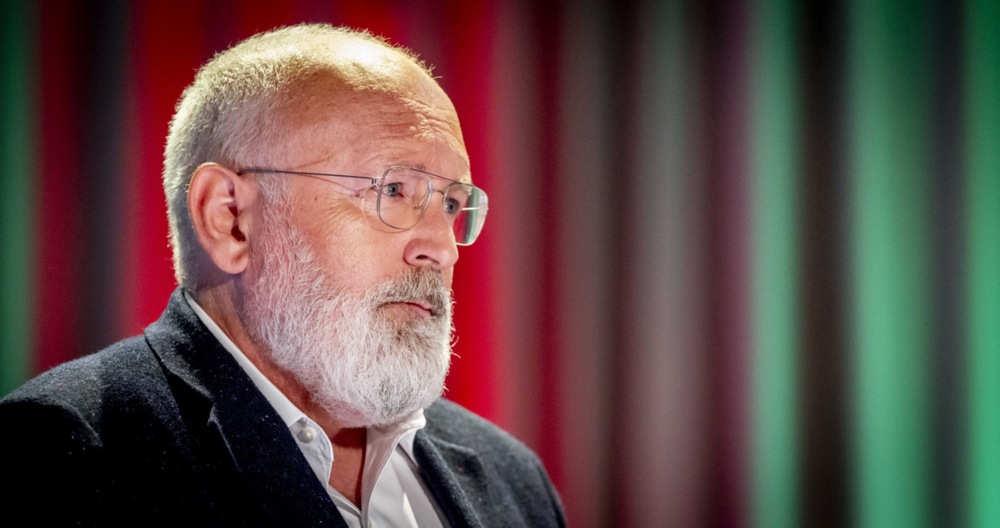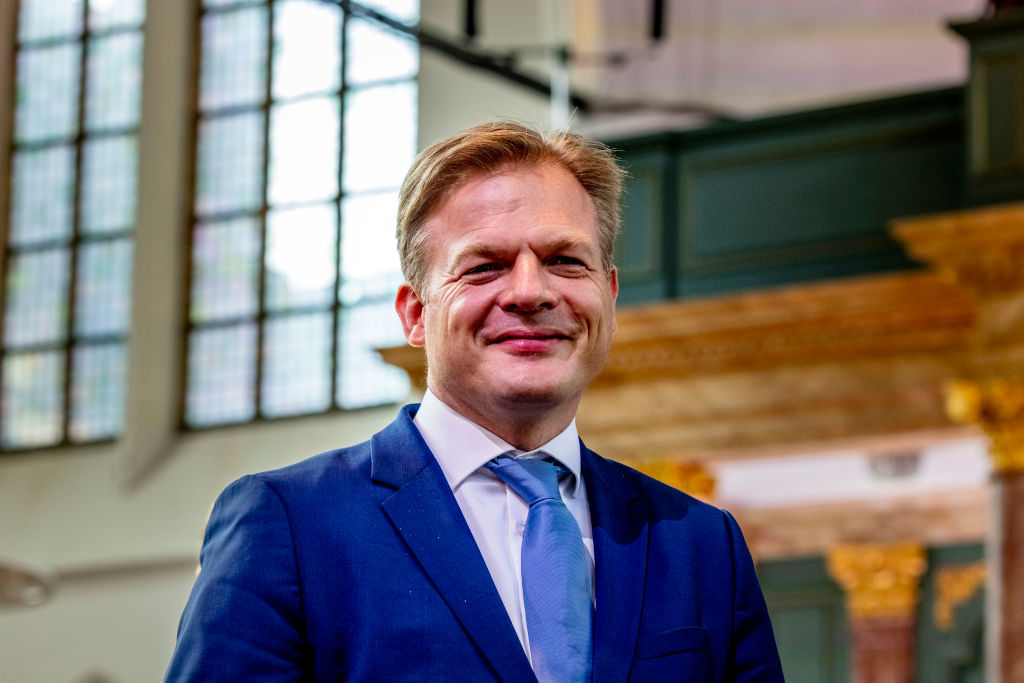The likelihood of the Netherlands getting a right-wing majority cabinet any time soon has significantly diminished.
Centrist Pieter Omtzigt of the New Social Contract party (NSC) pulled out of coalition talks on the evening of February 6, citing “troubling public finances”.
To some observers, that looked a somewhat dubious reason for stepping down.
Many in the other parties in the negotiations expressed their surprise. Geert Wilders of the Freedom party called Omtzigt’s move “incredible” and “disappointing”.
“The Netherlands wants this cabinet and now Pieter Omtzigt is throwing in the towel while we were still in talks until today. I don’t understand it at all,” he said.
Ongelooflijk wat teleurstellend. Nederland wil dit kabinet en nu gooit Pieter #Omtzigt de handdoek in de ring terwijl we tot vandaag nog in gesprek waren. Ik begrijp er helemaal niets van. #formatie
— Geert Wilders (@geertwilderspvv) February 6, 2024
Caroline van der Plas, of the Farmer-Citizen Movement, called it “a total surprise” as “up until today, we were talking constructively, in a positive atmosphere”.
“Mind-boggling.”
Dilan Yesilgöz of the Liberal VVD party said she hoped soon “to know what exactly is going on here”.
In a statement, NSC said it “has been sitting constructively at the table since the start of the information to explore whether and under what conditions a government can be formed”.
The party added it had asked the relevant ministries for information about “real financial setbacks and risks”, to determine how much room there was to “solve the problems of the people”.
The party said it was alarmed by new Treasury “information”, claiming the lead negotiator of coalition discussions Ronald Plasterk did not “disclose” all information when it was available.
In turn, he referred to the whole affair as “a bit of nonsense”.
The fact that government finances are apparently in such poor condition also came as a surprise to many.
In December, Dutch media were reporting that former finance minister, the left-liberal Sigrid Kaag, had left country’s finances “in very good shape”.
Dutch government debt was reportedly at the lowest point since the financial crisis of 2008.
The finance department said reports about financial setbacks in ministries were not uncommon and not usually regarded as a strong enough reason to curtail governmental talks.
Shortly after his announcement, Omtzigt appeared on TV to declare he was “open to negotiating” about a new government “but not in this round”.
In #HUMBERTO vertelt @PieterOmtzigt waarom hij de formatiegesprekken tussen NSC, PVV, VVD, en BBB heeft gestopt. Dit heeft volgens hem te maken met de financiën: pic.twitter.com/Hr6yozMiW4
— RTL Talkshow (@rtltalkshow) February 6, 2024
He did not specify with whom he wanted to negotiate but indicated it could be with “another group” and that his personal preference still was for a minority government.
“The most important question in such a formation is whether there is a prospect of agreement between parties on finances,” Omtzigt stated.
Government documents, in Omtzigt’s opinion, show that the Treasury is in a far worse state than most previously believed.
“It just needs to be made apparent how many financial issues exist. Much less than what we had hoped for is possible,” he said.
He did acknowledge that trust between the relevant partners “wasn’t always great” and expressed his irritation about leaks of confidential conversations to journalists.
Omtzigt also said the government formation talks did not “collapse”, insisting that “new elections are not an option”.
During the campaign, the NSC claimed the country needed more “transparency and good governance”.
Now, critics say, the party is headed in the opposite direction. Many say that was illustrated on the evening of February 6, with politicians from NSC appearing to shy away from the cameras and refusing to comment.
Veteran Dutch journalist Syp Wynia told Brussels Signal that Omtzigt had appeared to be “looking for trouble for a while now” in order, he said, to get out of the negotiations.
“Omtzigt initially saw various obstacles in the rule of law, particularly with Wilders. Those seem to have been resolved,” Wynia said.
“Now he perceives obstacles in government finances or, more accurately, in the lack of trust within the group of four parties, especially with the lead negotiator, who allegedly withheld information about government finances for a week.
“Not very credible.”
The likely explanation for his stance, according to Wynia, is that “his young faction – and possibly himself – does not want to govern with Wilders, at most as a supporting partner. Hence, the twisting and turning.”
According to the Dutch public broadcaster NOS, the formation process does have to begin from scratch and a new lead negotiator will have to be appointed by Parliament.
Political reporter Nouschka van der Meijden said: “It cannot be ruled out that Pieter Omtzigt’s NSC is no longer part of it [the formation].
“The only thing we know for sure now is that this formation could last for some time.”
Frans Timmermans of the coalition Socialists and Greens group reacted on X about the apparent problems, stating: “More concerned with blaming others than solving problems. Problems cannot wait until a government is formed. The Netherlands deserves leadership and solutions.
“Debate as soon as possible to determine how to proceed.”
Leader of the Democrats 66 (D66) Rob Jetten agreed, adding: “The Dutch expect politicians to solve problems – not that they run away when things get a bit difficult.”





